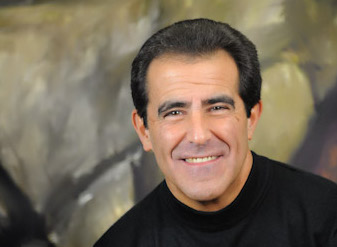COVID, the political climate and overly stressed patients are buckling the providers we rely on
By Jason Langendorf
March 9, 2021An ancient proverb with pre-biblical roots may have a sardonic and somewhat dark resonance for mental health providers in our present moment: “Physician, heal thyself.”
At a time when many of our healthcare systems are understaffed and overwhelmed, and when the general population is facing emotional strain greater than any we’ve witnessed in generations, the mental health professionals charged with meeting patients’ needs might be struggling mightily themselves.
Society expects the mental health professionals to be patient, caring, strong, motivating, readily available, free from stress and frustrations at the time of need; but [it] simultaneously stigmatizes psychiatry and mental health professionals.”—from the “Asian Journal of Psychiatry”
Unprecedented Stress for Mental Health Professionals
In a letter published in the October 2020 issue of Asian Journal of Psychiatry, two researchers point to the unprecedented stressors relating to the COVID-19 pandemic and warn of the personal and public risk of mental health professionals who neglect to look after or prioritize their own mental health.
“Society expects the mental health professionals to be patient, caring, strong, motivating, readily available, free from stress and frustrations at the time of need; but [it] simultaneously stigmatizes psychiatry and mental health professionals,” write authors Sujita Kumar Kar and Amit Singh. “In this situation, the mental health professional’s mental health gets grossly ignored. They often fail to seek adequate help for themselves, possibly out of the faulty belief that as experts they should deal with their mental health problems on [their] own. Moreover, a lack of engaging environment and support to those with [a] history of psychiatric illnesses during [the] COVID-19 pandemic makes them more vulnerable.”
The message is simple but serious: Mental health professionals are people, too. They are susceptible to the same stresses and anxieties as those they treat. But recently, the stakes have been raised. In our current environment, in which many of our systems are stretched thin, mental health providers are perhaps more vulnerable than ever.
“We’re all going through the same human experiences, and absolutely things will come up that may have impacted a provider at one point in time,” says Devin Lincenberg, Psy.D., a clinical psychologist and program director at Recovia, a multidisciplinary outpatient clinic for patients with chronic pain and substance use disorder.
You just have to make it an open source of conversation. Because [mental health therapists] show up to work, but behind the scenes they’re going through the same stuff.”—Joseph Lee, incoming president and CEO, Hazelden Betty Ford Foundation
Lincenberg cites concepts such as countertransference (emotional entanglement with a client) and vicarious trauma (a sort of therapist’s post-traumatic stress syndrome or PTSD) as issues mental health providers often must face. Although therapists are trained for just such situations, recognizing and addressing them—even in the best of times—can still be a challenge. Providers may be unexpectedly triggered and unsure how to react. In the midst of the pandemic and our current political climate, the degree of difficulty is only heightened.
“You just have to make it an open source of conversation,” says incoming Hazelden Betty Ford Foundation president and CEO Joseph Lee. “Because people show up to work, but behind the scenes they’re going through the same stuff. Kids are in virtual school, they’re worried about bringing illness back home. They’re worried about going to the store. They’re worried about their parents and their grandparents. They have friends they’re losing. They’re worried about jobs and the economy.”
How Therapists Can Get Help
Whether a provider is buckling under COVID-related stress or having trouble coping with feelings associated with a particular patient (Lincenberg says she has heard of problematic race issues coming up in sessions more frequently in recent years), one of the first steps for a therapist may be consultation with another provider or peer in the field. Reassignment of a patient may ultimately be necessary. Resources such as Meetup and Group Therapy Central, which maintains a list of online groups for therapists, can put providers in touch with others in the field to trade tips and commiserate.
In any case, Lincenberg says the potential ramifications are too great for therapists not to take proper steps toward facing their own mental health issues when they arise.
“Providers need to understand this about themselves, and they need to engage in self-care,” she says. “They need to have the knowledge of creating boundaries for themselves, separating work and personal life and understanding their own triggers so that they can better treat their patients and it doesn’t become a perpetual problem for them individually or for society at large.”
Photo: Conscious Design













